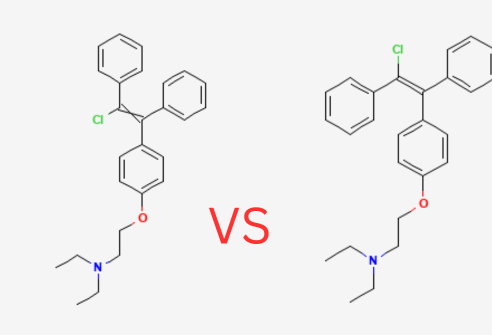Starting testosterone replacement therapy (TRT) in Maryland is easy with Empower’s simple four-step process. After an initial consultation to discuss symptoms, you’ll complete blood work to assess hormone levels.
A follow-up telehealth meeting with a provider then reviews your results and outlines a customized plan. Finally, your treatment is conveniently ready for pharmacy pickup, ensuring a smooth start to your TRT journey.
Keep reading to see how Empower can help you beat Low-T with our telehealth TRT options.
Initial Consultation
Your TRT journey begins with an initial consultation, where you’ll meet with a qualified provider to discuss your unique symptoms, health history, and wellness goals.
During this conversation, the provider will ask about any low-energy or fatigue issues, changes in muscle mass, mood fluctuations, or other signs that may be linked to low testosterone levels.
They’ll also explore your lifestyle, exercise habits, diet, and any relevant family medical history to understand your overall health profile.
This comprehensive overview not only helps identify whether TRT is the right choice but also allows the provider to tailor a treatment plan that addresses your specific needs, maximizing the potential benefits of your therapy while minimizing risks.
Blood Work
Next, you’ll complete a thorough blood panel to assess not only your testosterone levels but also a range of other important health markers. In addition to testosterone, providers typically check levels of estradiol, luteinizing hormone (LH), and follicle-stimulating hormone (FSH), which help evaluate the broader hormonal landscape. Key markers like these are essential for determining the appropriate dosage and strategy for TRT.
Beyond hormone levels, other blood markers provide insight into your overall health and identify any conditions that could affect your TRT plan. For example, lipid levels (such as cholesterol and triglycerides) are monitored, as TRT can impact cardiovascular health. Blood sugar levels and insulin markers are also often checked, particularly if you have a history or risk of diabetes, as these can be influenced by hormonal shifts.
Additionally, we will assess liver and kidney function through enzymes and creatinine levels to ensure that your organs are functioning optimally, as they play a role in metabolizing medications.
Hemoglobin and hematocrit levels, which measure red blood cell counts, are also checked, as TRT can sometimes increase these counts, which may require monitoring.
This comprehensive blood work ensures your TRT plan is precisely tailored to you, promoting effective results while prioritizing your health and safety at every step.
Telehealth Meeting
Once your blood work results are ready, you’ll have a telehealth meeting with a provider to go over the findings in detail. During this session, the provider will review your hormone levels and other health markers, explaining what each result means for your health and TRT eligibility. This meeting is your opportunity to discuss any concerns, ask questions, and gain a clear understanding of how TRT could address your symptoms.
Based on your results, the provider will outline a personalized TRT plan, including the recommended dosage, treatment frequency, and any lifestyle adjustments that may enhance your results. They may also discuss what to expect during treatment, potential side effects, and the importance of ongoing monitoring to track your progress and adjust your plan if needed. This step ensures you’re fully informed and confident before starting therapy, with a treatment plan tailored to achieve the best results for you.
Pharmacy Pickup
Once your treatment plan is finalized, you can pick up your medication from a partnering pharmacy, making it convenient to start your therapy without delay.
That’s it! Reach out to Empower today to find out if TRT is a good option for you.
Frequently Asked Questions About TRT
How Do You Qualify For TRT in Maryland?
To qualify for testosterone replacement therapy (TRT) in Maryland, you generally need to meet these criteria:
- Low Testosterone Symptoms: Common signs include fatigue, reduced muscle mass, low libido, and mood changes.
- Blood Testing: Blood work measures testosterone levels, with low levels (often below 300 ng/dL) indicating a need for treatment.
- Health History Review: Providers check for health conditions, like prostate issues or cardiovascular risks, that could impact TRT safety.
- Provider Consultation: A qualified provider reviews symptoms, blood results, and health history to confirm TRT suitability and safety.
Can I Get TRT Without Seeing A Doctor In Maryland?
To receive testosterone replacement therapy (TRT) in Maryland, you’ll need a prescription, but there’s no requirement to physically visit a doctor. Empower offers convenient online TRT options, allowing you to complete all consultations, assessments, and follow-ups virtually. This means you can get your prescription and access personalized TRT from the comfort of your home through secure telehealth appointments, making the process easy, accessible, and efficient.
How Much Does TRT Cost In Maryland?
In Maryland, the cost of testosterone replacement therapy (TRT) typically ranges from $199 to $500 per month. Basic plans start at $199, which covers the essentials, including consultations, personalized treatment plans, and regular follow-up appointments.
Is Taking TRT Legal in Maryland?
Yes, taking testosterone replacement therapy (TRT) is legal in Maryland, provided it is prescribed by a licensed healthcare provider. Testosterone is a controlled substance due to its potential for misuse, so a prescription is required to ensure it’s used safely and appropriately.
Will Insurance Cover TRT In Maryland?
In Maryland, insurance coverage for testosterone replacement therapy (TRT) varies based on the insurance provider and the specifics of the plan. Many insurance plans cover TRT if it’s deemed medically necessary, which usually involves having documented symptoms of low testosterone and blood test results confirming low levels.


